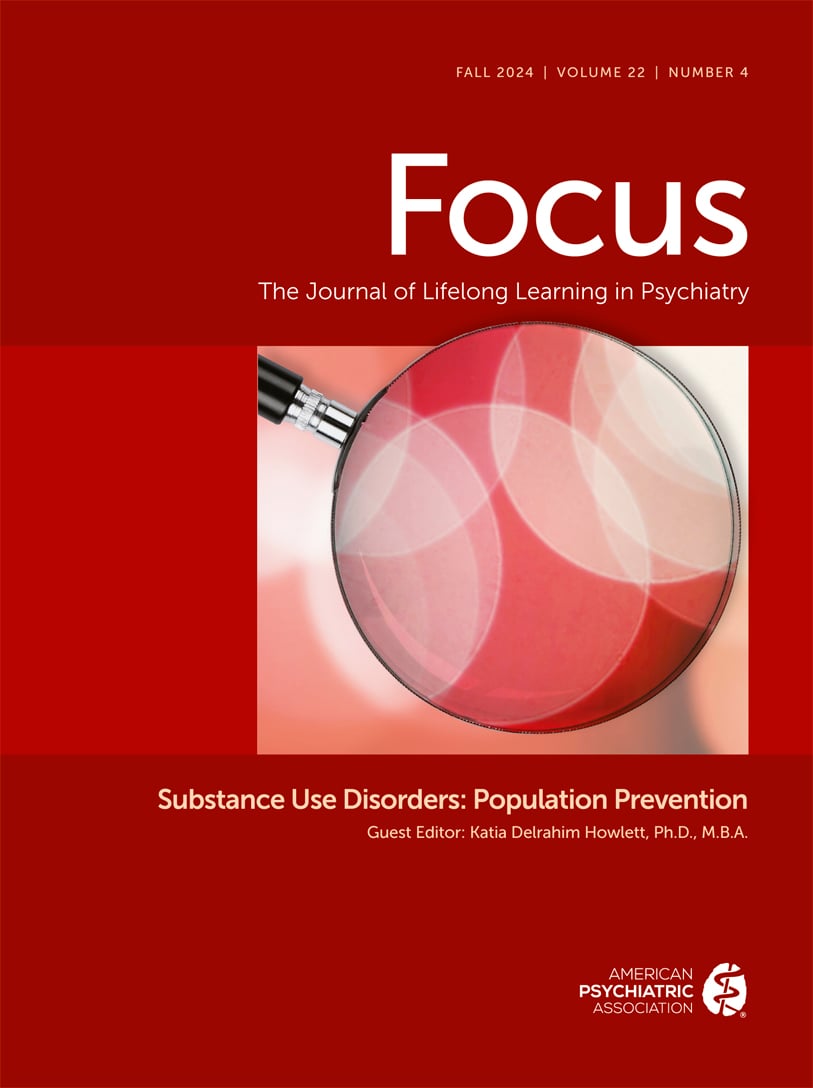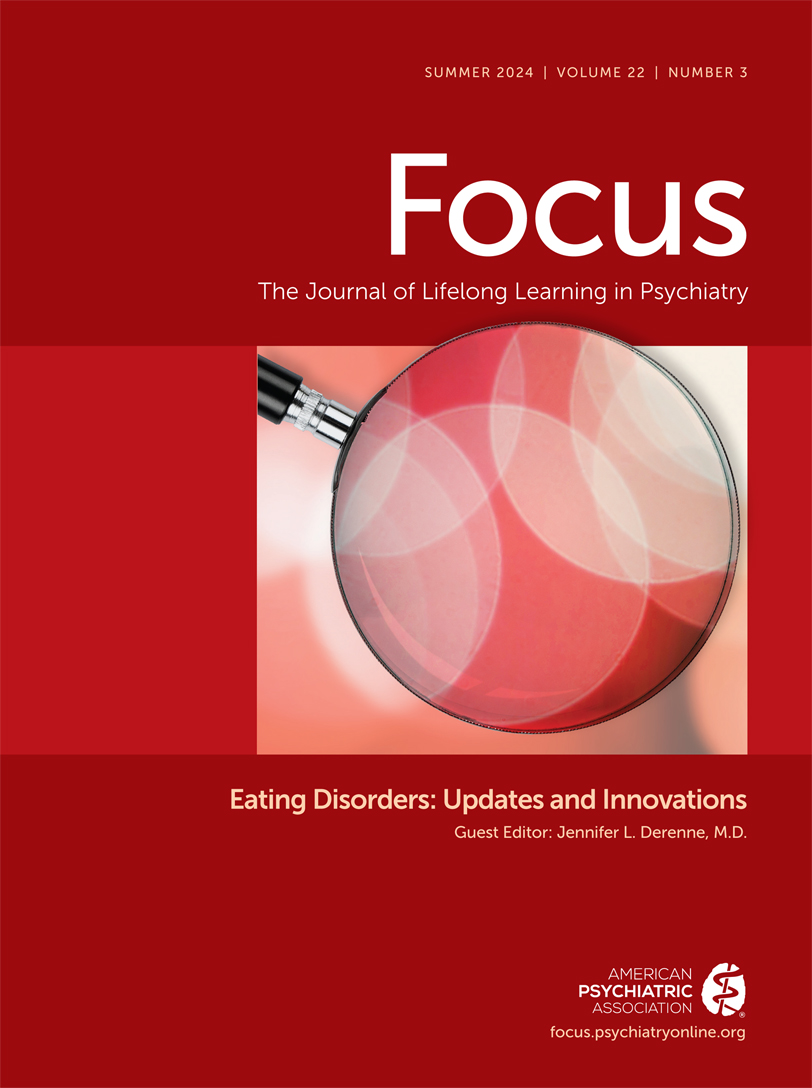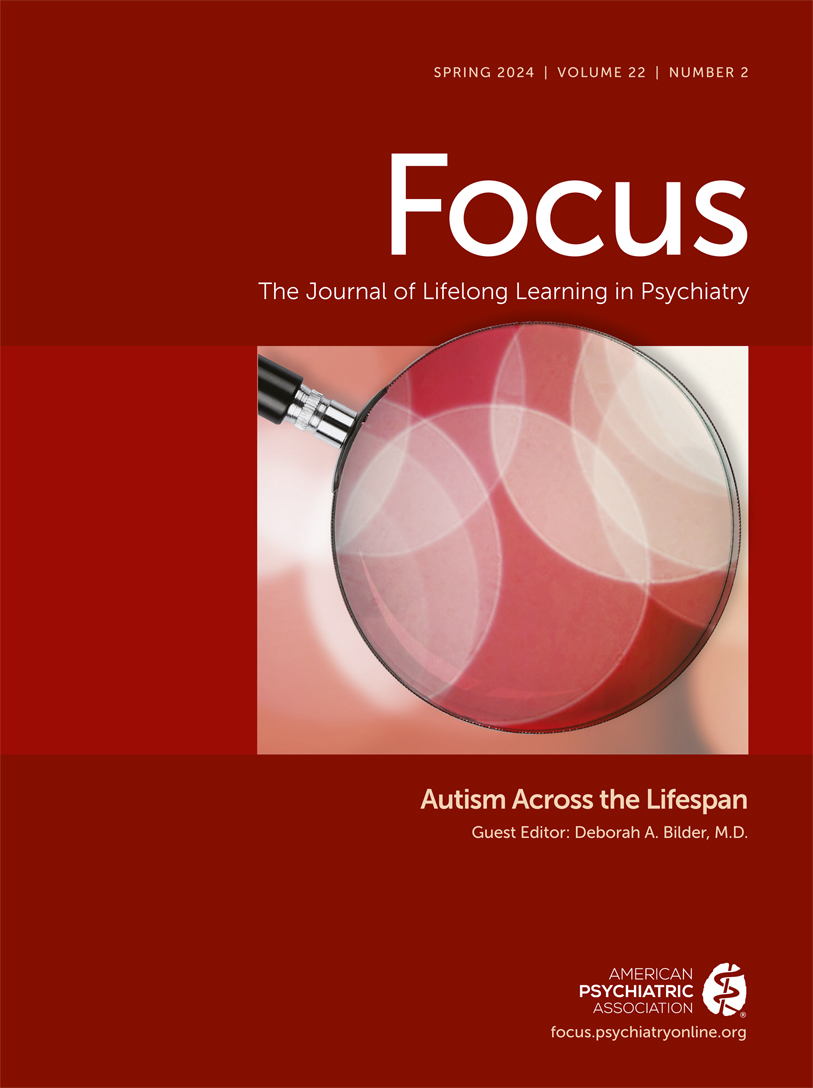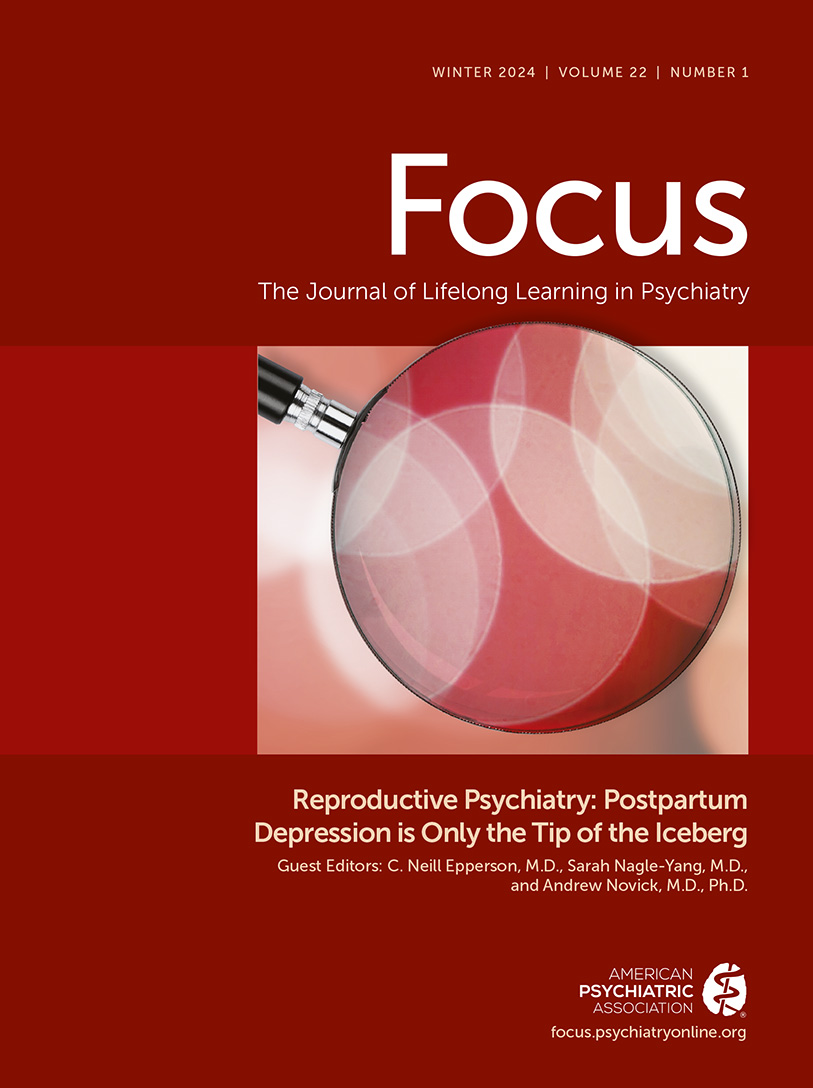Focus
- Volume 5
- Number 4
- October 2007
FROM THE GUEST EDITOR
CLINICAL SYNTHESIS
Publication date: 01 October 2007
Pages393–397Over the past 15 years, in response to widely-recognized gaps in the care of patients at the end of life, palliative care has emerged as a recognized subspecialty, focused on the care of patients with advanced, progressive, life-threatening illness. The ...
https://doi.org/10.1176/foc.5.4.foc393Publication date: 01 October 2007
Pages398–406Physicians and the pharmaceutical industry share a convergence of interest in providing safe and effective medications to patients, but differ in their practices and ethical standards. Interactions between them are inevitable and desirable, but may create ...
https://doi.org/10.1176/foc.5.4.foc398INFLUENTIAL PUBLICATIONS
Publication date: 01 October 2007
Pages417–419This section contains a compilation of recent publications that have shaped the thinking in the field as well as classic works that remain important to the subject reviewed in this issue. This bibliography has been compiled by experts in the field and ...
https://doi.org/10.1176/foc.5.4.foc417ERRATUM
INFLUENTIAL PUBLICATIONS
Publication date: 01 October 2007
Pages423–431(Reprinted with permission from Simon RI, Shuman DW: The doctor-patient relationship, in Clinical Manual of Psychiatry and Law. Arlington VA, American Psychiatric Publishing Inc. 2007; 17–36)
https://doi.org/10.1176/foc.5.4.foc423Publication date: 01 October 2007
Pages432–437Objectives: The aim of this paper is to describe the current status of psychiatric ethics as a form of professional ethics and apply this approach to a common clinical situation. Conclusion: Psychiatry is a profession and, like all professions, comprises a ...
https://doi.org/10.1176/foc.5.4.foc432Publication date: 01 October 2007
Pages438–443(Reprinted with permission from Psychosomatics 2006; 47(5):443–448)
https://doi.org/10.1176/foc.5.4.foc438Publication date: 01 October 2007
Pages444–450Purpose of review: In the wake of the Human Genome Project, the pace of genetic discovery has quickened. New genetic tests and other molecular technology have had immediate and wide relevance to American and European workers. These tests have the potential ...
https://doi.org/10.1176/foc.5.4.foc444Publication date: 01 October 2007
Pages451–458Medical and psychological discourse on end-of-life care has steadily shifted over the years from focusing primarily on symptom control and pain management to incorporating more person-centred approaches to patient care. Such approaches underscore the ...
https://doi.org/10.1176/foc.5.4.foc451Publication date: 01 October 2007
Pages459–471Most deaths in the United States occur in the context of chronic diseases in later life and are too often accompanied by potentially remediable emotional or physical suffering. Geriatric psychiatrists and other mental health professionals can contribute ...
https://doi.org/10.1176/foc.5.4.foc459Publication date: 01 October 2007
Pages472–475(Reprinted with permission from Roberts LW, Dyer AR: Caring for people at end of life, in Concise Guide to Ethics in Mental Health Care. American Psychiatric Publishing, Inc, 2004, 185–195. Please refer to the original source for appended material cited ...
https://doi.org/10.1176/foc.5.4.foc472Publication date: 01 October 2007
Pages476–482Drawing on their own consultative experience illustrated by case vignettes and with support from the professional literature, the authors discuss the perennial problematic issue of boundary violations and sexual misconduct, aiming at an audience of both ...
https://doi.org/10.1176/foc.5.4.foc476Publication date: 01 October 2007
Pages483–492The causes of sexual misconduct by analysts are discussed, as is the viability of rehabilitation for different types of transgressors. Common misunderstandings about the transgressor (such as the assumption of psychopathy and the likelihood of multiple ...
https://doi.org/10.1176/foc.5.4.foc483Past Issues
View Issues Archive
Vol. 22 | No. 4

Vol. 22 | No. 3

Vol. 22 | No. 2
